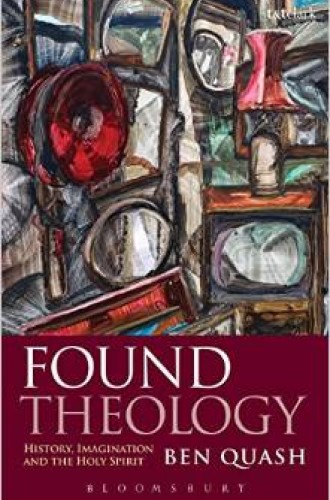Found Theology, by Ben Quash
The cover of Found Theology features the work of British artist Anna M. R. Freeman, who frequently goes to junk shops for inspiration for her painting. There she finds the history mixed with discovery that fuels her art. She sees junk shops as places where the past is not just remembered but re-membered: old objects are given new contexts and placed into relationship with new things. But in and of themselves, the objects do not mean much. They require the vision and imagination of the artist to draw out new meanings.
This is Ben Quash’s theological argument in a nutshell. For Quash, scripture and tradition are givens. They come to us without much choice on our part. We recite the creed that our ancestors recited. We read the same biblical passages they read. We inherit our parents’ choices as well as the choices of their grandparents and great-grandparents. But like the artist in the junk shop, our task is to discover and reinterpret what we have been given for new contexts and in relation to new circumstances. This work—pneumatological at its core—is what Quash calls “found theology.”
In some ways Found Theology merely offers a theory for what we as humans do inevitably all the time: we take what is given to us in the physical world and rework it to make meaning for the present moment. Even theologies that claim to be orthodox or neoorthodox have the work of rearticulating orthodoxy for the present, and in that rearticulation, they inevitably shift orthodoxy because language and meaning are constantly shifting. What perhaps makes Found Theology unique is Quash’s embrace of that reality and his search for the work of the Holy Spirit within the ongoing processes of history. Quash is concerned with connecting theology to art, science, and interreligious dialogue. He is interested in a method for Christian theology that allows deep and meaningful interaction with these critical contemporary forces. As he proceeds, he opens up large vistas for the future of theology.





